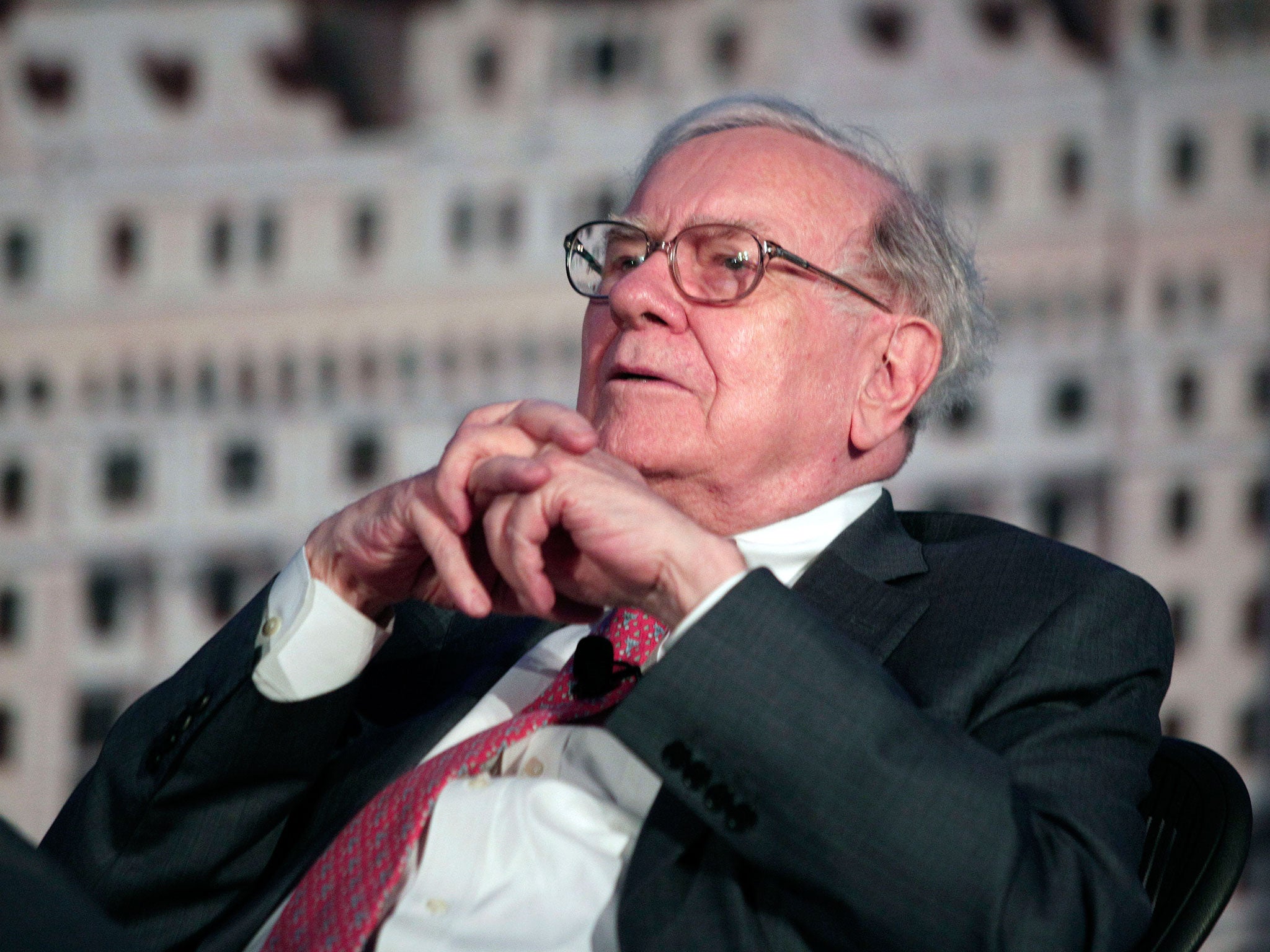Warren Buffett thinks the poor should stop blaming inequality on the rich
Third richest man in the world thinks that the minimum wage won't help Americans tackle the 'inevitable consequence' of income differences

People need to stop blaming the rich for income inequality in America according to the third richest man in the world, Warren Buffett
In an opinion piece written for the Wall Street Journal Mr Buffett, who is estimated to be worth $71.3bn by Forbes magazine, claims that the depressing fact is that “the poor are most definitely not poor because the rich are rich”.
Citing the likes of Henry Ford and Steve Jobs as examples of innovation, Mr Buffett goes on to say that the rich are not undeserving and that “most of them have contributed brilliant innovations or managerial expertise,” to America’s economy.
But Mr Buffett claims that inequality cannot be solved by increases in the minimum wage, from $15 an hour, or through methods like improving the quality of education.
His solution is to increase the Earned Income Tax Credit, which the US government currently gives to millions of low-income workers, with the view that as wages increase the payments go down.
Writing that the widening gap is an “inevitable consequence” of an advanced market-based economy, he said that pay first became unequal as not everybody could do the same job anymore.
He said: “No conspiracy lies behind this depressing fact: The poor are most definitely not poor because the rich are rich. Nor are the rich undeserving.
“Most of them have contributed brilliant innovations or managerial expertise to America’s well-being. We all live far better because of Henry Ford, Steve Jobs, Sam Walton and the like.
“It is simply a consequence of an economic engine that constantly requires more high-order talents while reducing the need for commodity-like tasks.”
Join our commenting forum
Join thought-provoking conversations, follow other Independent readers and see their replies
Comments
Bookmark popover
Removed from bookmarks